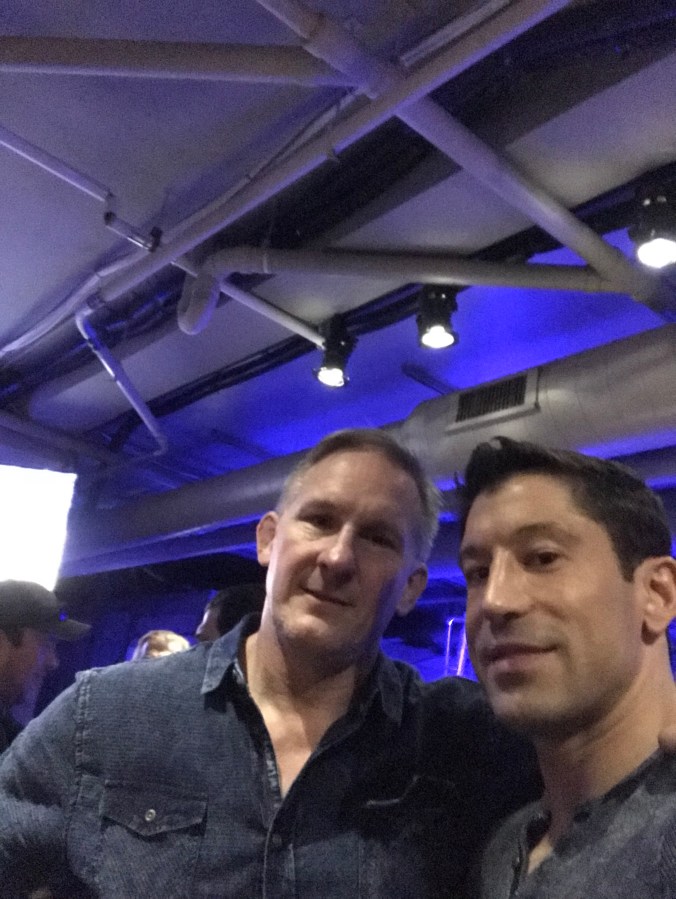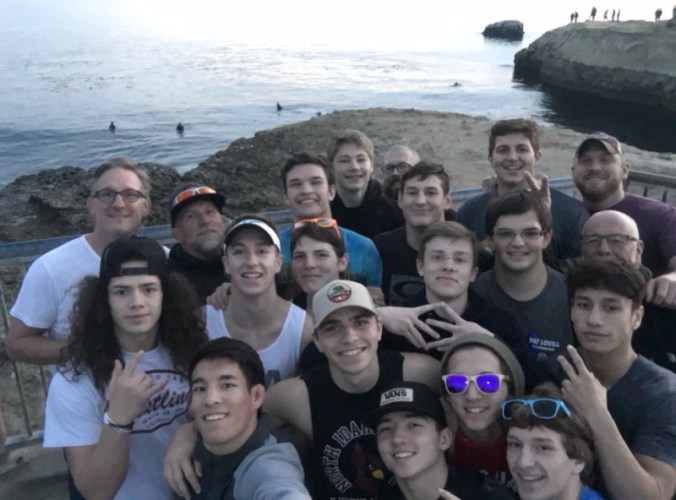Us wrestling coaches are a tight nit community who share the same space weekend after weekend. Unlike basketball or volleyball where coaches are separated, wrestling coaches must co-exist in the same stinky box for hours on end suffering in many cases loss and heartache. I know I’m being slightly melodramatic here but after yesterdays state tournament I’m a bit fragile.
We talk about if we want to continue to do this coaching game and how we actually plan to go forward. To put the hours in and if hours are translated to heart ache for a singular moment of elation where we catch a kid in our arms who just won state we ask, is it really worth it? There is always that scale in the conversation that weighs the time committed to the hugs and fist pumps at the end.
There are discussions, if you’re like me, who had a son that wrestled, about the stress of coaching your own kid and how or when your son or daughter is done you’re gonna retire. I said that and my son graduated in 2002 and 17 years later I’m still coaching. By the way, the years after he graduated were the most enjoyable of my coaching career.
We talk a lot about what bothers us; the kid that quit either in a match or during a season or the over zealous parents. We discuss while looking over our shoulder the mom or dad that’s pissed because their son or daughter didn’t receive what they thought was due (a great attribute of the sport). Our best stories are about parents and especially the crazy ones who bring us both torment and joy.
Sometimes, we talk about technique and our language changes to a nerdy vocabulary of body parts in space and motion that could only be described in the realm of astrophysics or behavioral psychology. At minimum during these times of great insight we perceive we may be some of the smartest people on earth. We pass along technical ideas like we are shopping the isles of a soon to be bankrupt Sears store. When in this state of wrestling technical euphoria it’s not unlikely for us to squat, lie prostrate, or hold on to each other in the most egregious ways. We are at our best when discussing the nuances of locks and holds. I told another coach tonight, I thought his wrestlers high crotch hand was too high in the crotch. He shook his head in affirmation as if I just admitted I had a large boil on my ass.
Officials are always a good topic while secretly agonizing over our own failures as coaches. Our conversations regarding officials are rarely nice even though all of us have our favorites and if we had a chance would buy that favorite a beer if not three. These favorites are always dictated by a good call they sent our way in an important match. There are times we talk about them as if they come from a secret society of striped gestures who steal our dreams. I don’t know how many times this weekend I heard, “that %*+~ing official…..” as if they are referring to an illusive nome who snuck out from behind a rock and punched them in the gut. They walk away muttering, “that dirty nome I’ll get him.”
We tell stories about past wrestlers, tournaments, losses and wins and usually they have humor or a punch line where we all shake our head and silently say, I can relate dude. This is the beauty of being a wrestling coach and belonging to the fraternity of people who understand the weird and anguished existence we inhabit.
If I’m being honest we usually talk about the kids. We talk about how they inspire us and break our hearts. How these kids never cease to amaze us and are the reason we stay so young and do it beyond our effectiveness. We want to brag a little about her or him and how awesome they are. These kids or wrestlers are also the material for hours of laughs, cries and moments of reflection in our own lives. When you sit in the stands and look down onto the floor and wonder what are these people always talking about, now you know.
I couldn’t imagine not having worked with these young people in such a gratifying and sentinel time in their young lives. What a gift.
 Wow, what an NCAA Tournament. In the above picture is Jesse Jantzen (right, I’m the old guy on the left) a guy who definitely got the job done at the NCAA Tournament back in 2004. Jesse was so dominant his senior year there was little doubt he would win it. Most of the time it doesn’t work like that. The line between failure and success is so thin it’s hard to determine exactly what will give the athlete that fine edge for success on the culminating weekend. Penn State does what they do with a special spirit and resilience that is impressive. But let’s not forget how talented they are and getting it done in the glare of the lights has a lot to do with talent. I think what’s more impressive is the poise and grace of the two freshman champions. Granted, these young men have a ton of mat time and have performed on the world stage but there is nothing like the finals of the NCAA Tournament for intensity and pressure and being your best at that moment say’s something about their mental makeup. I have been fortunate enough to watch both of these young men win Cadet World Championships and their calm under pressure is something they seem to have mastered. I guess it’s only pressure if you see it that way eh?
Wow, what an NCAA Tournament. In the above picture is Jesse Jantzen (right, I’m the old guy on the left) a guy who definitely got the job done at the NCAA Tournament back in 2004. Jesse was so dominant his senior year there was little doubt he would win it. Most of the time it doesn’t work like that. The line between failure and success is so thin it’s hard to determine exactly what will give the athlete that fine edge for success on the culminating weekend. Penn State does what they do with a special spirit and resilience that is impressive. But let’s not forget how talented they are and getting it done in the glare of the lights has a lot to do with talent. I think what’s more impressive is the poise and grace of the two freshman champions. Granted, these young men have a ton of mat time and have performed on the world stage but there is nothing like the finals of the NCAA Tournament for intensity and pressure and being your best at that moment say’s something about their mental makeup. I have been fortunate enough to watch both of these young men win Cadet World Championships and their calm under pressure is something they seem to have mastered. I guess it’s only pressure if you see it that way eh?



You must be logged in to post a comment.